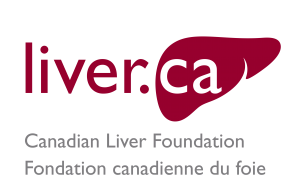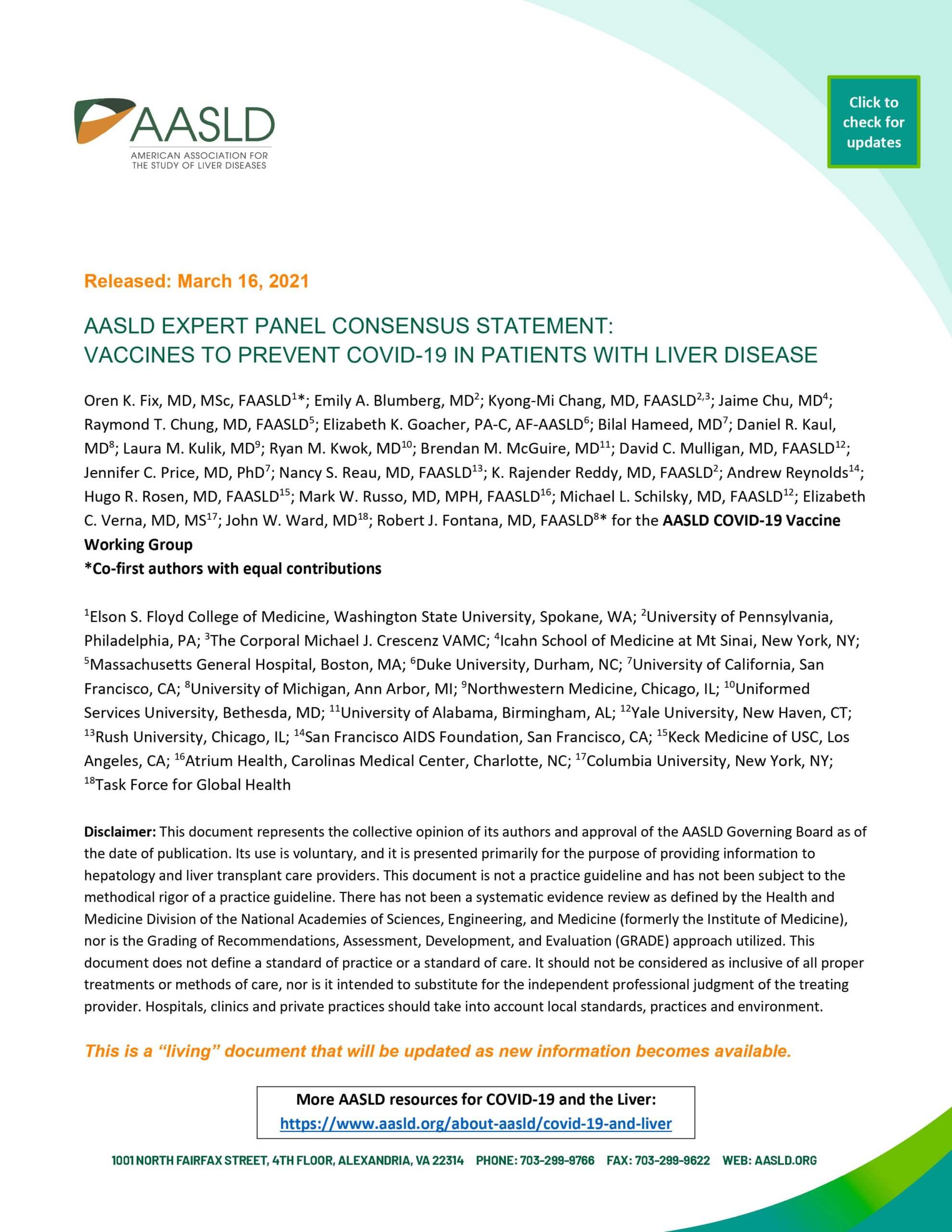Action on COVID-19
Action on COVID-19
The Canadian Liver Foundation wants to assure our community that we are watching closely as the situation with COVID-19 continues to unfold globally. As part of our commitment to open and transparent communication, we want to update you on the actions we are taking to safeguard our community and on recommendations specific to those living with liver disease.
* Revised February, 09 2021 *
The health and safety of each member of our community is our highest priority. As such, we are in regular communication with our regional offices to ensure everyone is following the protocols that support their health and wellbeing. Specifically, we have taken the following steps:
- Our National and Regional offices are closed, but our staff is working remotely to ensure a continuation of service. Our sharpest focus is on maintaining our National Help Line and other patient support services to answer questions from our community members. We are continuing to keep our community informed via social media.
- We have cancelled all in-person events until further notice. Please see the advisory notice below regarding in-person events.
- We encourage everyone to follow us on social media to stay connected and learn more about our upcoming online events/programs.
Individuals living with liver disease might be wondering about COVID-19 recommendations specific to their situation. There are a number of important points to make that will be of interest for these members of our community:
- Coronavirus disease 2019 (COVID-19) is caused by severe acute respiratory syndrome coronavirus 2 (SARS-CoV-2) and has rapidly escalated into a global pandemic.
- COVID-19 elevates liver enzymes, even in individuals who do not have a liver disease diagnosis. In mild cases, the liver damage is temporary and usually does not require treatment, but severe cases may result in long-term or permanent liver injury.
- Currently, there is limited information about whether people with a chronic liver disease, including liver cirrhosis, hepatitis B, hepatitis C, and chronic non-alcoholic liver diseases are at increased risk for getting COVID-19 or having severe COVID-19. However, based on currently available information and clinical expertise, older adults and people of any age who have serious underlying medical conditions, including people with advanced liver disease (decompensated liver cirrhosis), may be at higher risk for severe illness from COVID-19, particularly if the underlying medical conditions are not well controlled.
- Patients who are overweight or obese with non-alcoholic fatty liver disease (NAFLD) often have additional metabolic risk factors which may aggravate the severity of COVID-19, if they become infected.
- Autoimmune liver disease is not a known risk factor for getting COVID-19 or having a more severe COVID-19 infection.
- People with liver cancer may be at higher risk of severe COVID-19 illness and/or developing more problems from their existing liver disease. COVID-19 should not prevent patients from receiving cancer therapy. Treatment options may vary depending on their availability within the center and your stage of cancer. All of these options will be evaluated carefully by the your health care providers.
- Children with liver disease or post-transplant, who are on more than one immunosuppressive medicine (after transplant or for autoimmune hepatitis), other medical conditions may be at higher risk of severe COVID-19 if they become infected.
- Heavy alcohol use is toxic to the liver and can limit the bone marrow’s ability to make the cells needed for a healthy immune system. Health care providers are encouraging their patients to abstain from excessive alcohol use during the pandemic, especially since patient with alcohol-related liver disease are at particularly high risk of developing severe illness from COVID-19 infection.
- Recent reports suggest that liver transplant recipients may not have a greater risk of developing severe illness from COVID-19 infection. However, most of these patients may require hospital admission should they become infected. Severe complications has been observed only in older patients (>60 years of age) and more data of COVID-19 in transplant recipients will be forthcoming.
- The decision to proceed with organ donation and transplantation must balance the risk the virus poses to potential recipients with the risk of delaying transplantation. Undoubtedly, this will cause concern for those waiting for a transplant and for transplant recipients. Those awaiting liver transplant should know that the risk of acquiring COVID-19 by organ donation is very low, as all donors—living and deceased—are screened for the virus. As the situation is unique in each province, provincial transplant programs are working with patients to provide information and updates. Most programs in Canada are continuing to perform liver transplants with appropriate testing of both donors and recipients. For the latest information from the Canadian Society of Transplantation (CST), please visit www.cst-transplant.ca/COVID-19_Information.html
The safety of returning to work or other in-person activities depends on the severity of your liver disease, how strongly immunosuppressed you are, whether you have any other medical problems, current COVID-19 transmission in your community, and whether measures to prevent transmission are being practiced (physical distancing, wearing face coverings, handwashing or using a hand sanitizer). We strongly recommend following Health Canada’s public health guidelines: www.canada.ca/en/public-health/services/diseases/coronavirus-disease-covid-19.html
The COVID-19 pandemic has increased stress and anxiety for many people—around health, family, economic security, and other issues. These are real and important issues for everyone, and we are united in delivering a singular message to each member of our community: you are not alone! Reaching out for mental health support and maintaining healthy habits, such as exercising regularly, getting fresh air, eating wholesome foods, and getting regular sleep, remain very important during the pandemic.
- Our National Help Line will continue to be available throughout the pandemic. Reach us by email at info@liver.ca or by phone at 1-800-563-5483 (Mon-Fri 9:00-5:00).
- We encourage everyone to follow us on social media to stay connected. We are committed to frequent communication throughout the pandemic, focusing on ways to stay healthy and well in our current circumstances, news from throughout our national network, and encouragement for those affected.
Vaccination Policy
The Canadian Liver Foundation (CLF) is committed to supporting our community as the COVID-19 pandemic unfolds.
While the situation continues to shift, our top priority remains the health, safety, and well-being of our staff, Board, contractors, volunteers, and members of the public who interact with us.
With this in mind, as of November 1, we have implemented a vaccination policy for all in-person CLF activities, including visits to our National and Regional offices, and attendance at events permitted under public health guidelines. Prior to entry and/or participation, all persons will be asked to show provincially-issued proof of vaccination, subject to approved exceptions under applicable human rights legislation (i.e. medical reason or religious reason). Vaccination records will be checked and verified, but not stored.
We thank all members of our community for your cooperation in advance. For more information or to share your comments/concerns, please email clf@liver.ca.
Policy Regarding In-Person Events in 2021
The COVID-19 pandemic continues to evolve daily across Canada, and while we are hopeful for a return to safe public gatherings and in-person events following the vaccine rollout in the future, government guidance suggests we will not see these kinds of events being permitted until the end of 2021 at the earliest, and more likely in 2022.
After discussion and guidance from our Board of Directors, further consultation with our industry peers in the non-profit and healthcare space, and given the current state of affairs, the Canadian Liver Foundation will not be permitting the hosting of any in-person events, programs or services in 2021. This guideline will remain in effect until December 31, 2021. While this is the policy for 2021, it will be regularly evaluated by the National Board of Directors.
While public health guidelines vary across regions, provinces and territories in Canada, federal public health continues to advise against in-person gatherings, and in most places these are simply not permitted by law. Moreover, we have seen many examples of in-person events in local and national news over the last ten months that have become “super spreaders” despite efforts to maintain safety guidelines. We have also seen the fallout and damage to public perceptions of leaders, politicians and organizations who go against these guidelines, as they are rightfully not to be taken lightly.
The position of the Board and executive team is that any risk, no matter how small, is not a risk worth taking in any case. It is in the best interest of our community, supporters and of our organization to focus our efforts on adapting and pivoting to different ways we can engage our community via virtual events and fundraisers until we have clear government guidance that in-person events are permissible, and until all by-laws relating to COVID-19 restrictions are lifted.
This decision was not taken lightly, and was met with much discussion and consideration among the Board and leadership team. However, it is the right thing to do at this time, and after seeing how successfully our organization pivoted and adapted in 2020, I am confident we will not only overcome this challenge but surpass expectations and continue fulfilling our mission of supporting our community and bringing research to life.
Thank you for your understanding, and please don’t hesitate to reach out should you have any questions, comments or concerns at clf@liver.ca.

Jennifer Nebesky
President & CEO
Expert Guidance for Liver Disease Patients *
People living with liver disease are strongly encouraged to get vaccinated against COVID-19. This includes people with hepatitis B, hepatitis C, fatty liver, PBC, PSC, AIH, cirrhosis and other chronic liver diseases as well as those waiting for liver transplant and those who have already received a liver transplant.
The vaccines appear safe and effective.
What do we know about the new vaccines?
- The mRNA vaccines (Pfizer & Moderna) use a new technology that allows for faster vaccine design and production – these vaccines do not use a live virus and do not affect your DNA
- Other vaccines (eg. Oxford vaccine) use more standard vaccine approaches
- Two vaccine doses are required for maximum protection with these vaccines
What do we know about side effects?
- Mild side effects are common after each dose, similar to other vaccines and include pain/discomfort where the injection is given, fatigue, headache and low-grade fever – most often for 1-3 days
- Severe side effects were very rare in the studies that included over 30,000 people and no new problems have been seen as the vaccines have been rolled out around the world (millions of doses given)
Is it possible that there will be long-term side effects of the vaccine?
- Vaccine side effects usually occur early, most often within days to weeks after the vaccine, and almost always within the first 2 months after vaccination
- The risk of rare long-term side effects is extremely low
- Severe allergic reactions have rarely been reported – if you have had a severe reaction to other vaccines (anaphylaxis) or are required to carry medication for allergies, speak to a health care provider before receiving the vaccine
What about my liver disease?
- Having liver disease does not increase your risk of experiencing a side effect
- The medications you take for your liver disease, including any immunosuppression, should not be a reason to decline a vaccine, but may have a small effect on how well the vaccine protects you
Why do we recommend vaccination?
- People with liver disease, especially cirrhosis and possibly fatty liver, are at higher risk of getting very sick if they get COVID-19 infection, making it even more important to be vaccinated and be protected
- The vaccines are over 90% protective against symptomatic COVID-19
- The vaccines have been studied in people with liver disease with no safety concerns identified
- It is safe for people with impaired immune systems to be vaccinated with the COVID-19 vaccine
- The benefit of protecting yourself, and others, against the spread of COVID-19 far outweighs any potential risk
Do you still need to take precautions after vaccination?
- Yes
- The vaccine is much less effective after a single dose than after 2 doses
- Even though the vaccines reduce the risk of severe COVID-19, they are not perfect; even after vaccination, masks and physical distancing are still recommended
- It’s always important to follow the latest public health advice and guidance
These recommendations were developed by the healthcare team and patient partners at the Toronto Centre for Liver Disease. We understand you might still have questions after reading this and if you do, please contact your doctor or nurse practitioner.
* Updated January 11, 2021
Information used with permission from the Toronto Centre for Liver Disease at the University Health Network.
Download the PDF file for Information about COVID-19 Vaccines for People Living with Liver Disease.
- CANVAS is monitoring COVID-19 safety in the general public across Canada, with different regional approaches to recruitment, and a standardized set of REB-approved questionnaires. Please visit this link: Canadian National Vaccine Safety (CANVAS).
- Immune-Compromised Canadians and COVID-19






